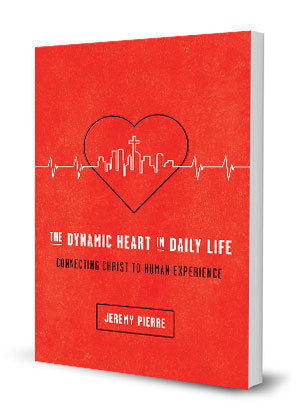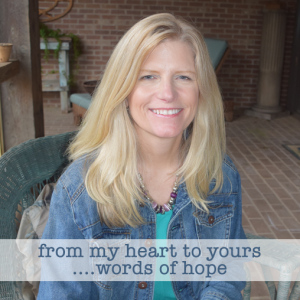
by Lucy | Oct 5, 2017 | biblical counseling, biblical counseling, emotions |
Who doesn’t have ugly thoughts, at least once in a while? Good news: You can replace ugly thoughts with truthful thoughts and renew your mind. Here’s a tool for you.
So today you learn how to:
1. Identify an ugly thought you believe that’s true about you or your circumstance.
2. Recognize the link between your thoughts and your feelings and replace your ugly thought with a new thought.
3. See change in your emotions and actions as you renew your thoughts. A helpful tool is my Transform Your Thoughts e-Journal. Available now.
What’s better, this process has helped hundreds of my counselees renew their thinking. It is based on scripture verses like Romans 12:2 and Ephesians 4:22-24:
You were taught, with regard to your former way of life, to put off your old self, which is being corrupted by its deceitful desires; to be made new in the attitude of your minds; and to put on the new self, created to be like God in true righteousness and holiness.
Step 1: Identify
First, on notebook paper, set up your categories like this:
UGLY THOUGHT. . .EMOTIONS. . .ACTIONS
Then under “Ugly Thought” write your current or recurring negative, ungodly thought. Then jot down the resulting emotions under “Emotions.” Now, list your behaviors under “Actions.” Here’s an example.
UGLY THOUGHT: “I’m stupid”
EMOTION(s): Anger, depression, loneliness
ACTION(s): Yell at the kids, slam the door, eat a bag of chips
Step 2: Replace
Now write three new categories. Under “Truthful Thought” replace the ugly thought with a biblical truth or a scripture verse. Then write the likely resulting feelings under “New Emotion” and likely behaviors under “New Action.” On your notebook paper set up your categories like this:
TRUTHFUL THOUGHT. . .NEW EMOTIONS. . .NEW ACTIONS
Here’s a corresponding example.
TRUTHFUL THOUGHT: God says all his works are wonderful, so this means I’m an okay person and He’ll help me.
NEW EMOTION(s): Contentment, courage
NEW ACTION(s): Hug the kids, smile, complete the job application
Step 3: See Change
Lastly, chart the ugly thoughts you believe, your emotions, and your actions daily. As soon as you recognize an ugly thought, replace it with a truthful thought.
Click & Tweet!
And ask God in prayer to help you believe his truth. As you stick with it, you’ll begin to see a change in your emotions and actions as you replace ugly thoughts with the truth. Please be patient and persevere.
You didn’t develop poor thinking patterns overnight. In fact, they may have begun in childhood and are ingrained in your thinking. And so it’ll take weeks, sometimes months, as you to cooperate with the Holy Spirit in the renewing of your mind. Have hope. You CAN do it with God’s help.
Question: What is truthful thought you’d like to have in place of an ugly thought?
by Lucy | Apr 4, 2017 | biblical counseling, identity in Christ, Tuesday tool
 “A-to-Z Identity List” is this month’s Tuesday tool.
“A-to-Z Identity List” is this month’s Tuesday tool.
When you tell yourself the truth of who you are in Christ, your life undergoes a beautiful transformation.
Click & Tweet!
“I am Chosen by God”…”I am Made to worship”…”I am Victorious over sin” — these A-to-Z truths and others come from the Word of God. And they will encourage you to stop false beliefs and start seeing through the lens of scripture. Then as you embrace them, your mind is renewed (Romans 12:2), and healing follows.
Get the Most from the A-to-Z List
Here are two excellent ways to delve into your God-given identity and get the most out of the A-to-Z list.
- Read the entire list of words, and note 3 to 5 that are meaningful to you.
- In a journal, personalize each verse. EXAMPLE: For Lamentations 3:22-23, you might personalize it by jotting down,
God loves me and has great compassion for me.
I don’t have to let trials rock me because God is always faithful to me.
Journaling God’s truth is among the best helps for my counselees to reduce their anxiety, calm their anger, and turn their feelings of despair into real hope.
A-to-Z List
Accepted–John 15:15; Ephesians 1:6
Born Again–John 3:5-7
Chosen, confident–Ephesians 1:4; 2 Corinthians 3:3-4
Direct Access to God–Ephesians 2:18, 3:12; Hebrews 4:16; 1 Peter 2:5
Established by God--Genesis 1:27; 2 Corinthians 1:21-22
Forgiven—Ephesians 1:7; Psalm 32:1; Isaiah 43:25-26!
God’s child—John 1:12; 1 John 3:1
Heir with Christ–Romans 8:17, Galatians 3:29
Immersed in Jesus Christ–Acts 2:38; Romans 6:4
Justified—1 Corinthians 6:11; Titus 3:5-8
Kept for eternity--John 10:28, 29; Philippians 1:6
Loved–John 3:16, 15:13; Ephesians 5:2, Colossians 3:12
Made to worship–Ecclesiastes 3:10-11; John 4:24
New creation in Christ–2 Corinthians 5:17
Optimistic--Joshua 1:9; Romans 8:28-29
Peace—John 14:27; Philippians 4:7, 2 Thessalonians 3:16
Quietness of Soul–Psalm 46:10, 62:5, 131:2
Rescued from Satan’s domain–Colossians 1:13
Secure, sealed – 1 Peter 1:5; Ephesians 1:13-14, 2:8-9
Temple of God–1 Corinthians 3:16, 6:1
Unique--Matthew 10:30; Psalm 139:14
Victorious over sin–1 Corinthians 15:57; 1 John 5:4
Whole, no longer incomplete–James 1:2-4, 1 John 4:12
Xtra valued by God–Psalm 17:8, Deuteronomy 32:10
Yoked with Jesus–Matthew 11:28-29
Zealous for the things of God–Revelation 3:19; Titus 2:14
by Lucy | Mar 28, 2017 | biblical counseling, book reviews, Tuesday tool
 The Dynamic Heart in Daily Life: Connecting Christ to Human Experience is a treasured tool I very highly recommend and use regularly in counseling. if you’re a counselor, you’ll appreciate this tool to help women and families. If you’re not a counselor, but want to understand why you feel, and say, and do, the way you do, then this book is for you too.
The Dynamic Heart in Daily Life: Connecting Christ to Human Experience is a treasured tool I very highly recommend and use regularly in counseling. if you’re a counselor, you’ll appreciate this tool to help women and families. If you’re not a counselor, but want to understand why you feel, and say, and do, the way you do, then this book is for you too.
READ A CHAPTER –> Wouldn’t you like to read a chapter? Here’s a link to chapter one.

In this brief article, you’ll learn from Jeremy Pierre’s book:
- What makes your heart tick
- How the heart is corrupted and redeemed
- A plan to counsel the heart
What Makes Your Dynamic Heart Tick?
Your heart responds cognitively, affectively, and volitionally to the life’s circumstances. It is multidimentional, it is dynamic. Most important, faith in Christ is the means by which your heart can respond to life differently, better.
Did you know each person’s heart is both simple and complex? The heart has automatic responses to situations. But underlying these seemingly auto-responses are deep beliefs, desires, and commitments of which people are generally unaware.
However, people can become aware and should. While psychotherapy on the whole divides awareness into conscious and subconscious, Scripture has a multifaceted view.
The Dynamic Heart, Corrupted
The corruption of the heart began at the Fall (Genesis 3) and infects all of the dynamic heart: cognition, affection, and volition. It shows up as idolatry.
Idolatry is a whole-hearted inclination that fails to believe God is God and worship him alone.
An alcoholic, then, is not worshipping a bottle but something deeper and more complex—a way to get something good apart from God. As this becomes habitual, the person loses sight what the idol is doing to him and he takes on the deadness of the idol to his detriment. God interrupts, he gives a Cross-shaped message of hope.
The Dynamic Heart, Redeemed
Jesus redeems the dynamic heart so it can do what God intends: worship him in thought, desire, and choice. God made the heart to imitate his own. Did you know you are an image-bearer?
While God is unlike people in many ways (e.g., he is omniscient), he is like people in some ways. For instance, he reasons and has emotion. As believers respond whole-heartedly to God and without reservation in reflective prayer and careful study of Scripture, they become more like Jesus.
Counseling the Dynamic Heart
A plan for counseling the dynamic heart requires four tasks. They are:
READ: Hearing people’s hearts
Llistening is crucial to understanding a hurting person and her problem in its context. Hearing the heart includes paying attention to what the counselee is saying (and not saying).
REFLECT: Helping people understand their responses
Self-awareness helps a hurting her connect her intuitive (or, automatic) responses to their belief system. Then she can challenge her automatic heart responses and begin to change.
RELATE: Looking to Jesus
With greater self-awareness of one’s responses, she sees that the help she needs comes from Jesus. Just as a believer trusts Jesus for her salvation from sin, she also learns to trust him for helping her make new heart responses.
RENEW: Calling for new responses from faith
Commitment to change is key. This requires an active faith since “heart change occurs as it is lived out, shaping and reinforcing new values and commitments,” Pierre writes.
Resources for You!
COUNSELING: Struggling? I offer biblical counseling by Skype and in person (greater Chicago). Learn more.
Struggling? I offer biblical counseling by Skype and in person (greater Chicago). Learn more.
FIT FOR LIFE eBook: A comprehensive weight-loss and life change plan. Check it out. Click here for information.
ARE YOU A COUNSELOR? Join Heart2Heart Counselor Directory! Get details now..
Sharing Hope with Your Heart,


by Lucy | Jan 12, 2017 | biblical counseling, emotions, thoughts
A right and godly focus cuts through the complications of life and brings peace to your heart. In her article, which appeared first here on her website, Heart2Heart Counselor Karen Gaul shares insights from story of Ruth as well as Paul’s letter to the Philippians.

Life has a way of being very complicated. It is so easy for us to get lost in the situations that happen around us that we quickly lose our focus and our way. We become overwhelmed, disillusioned, fearful, maybe even bitter and angry.
When Paul wrote his letter to the Philippians it seemed that might be the case. Paul hoped to encourage this church. I wonder if they were thinking that since Paul was a follower of the Way and was imprisoned that maybe it could happen to them too. Perhaps the scuttlebutt around town was “imagine Paul in prison, chained up. I wonder if he is going to be killed soon? He must be scared. This is terrible. How could God let this happen? Is Paul wrong?”
But this is what Paul writes,
Now I want you to know, brothers, that what has happened to me has really served to advance the gospel. As a result, it has become clear throughout the whole palace guard and to everyone else that I am in chains for Christ.
Because of my chains, most of the brothers in the Lord have been encouraged to speak the word of God more courageously and fearlessly.” Philippians: 1:12-14
Deciding Your Focus
Wrong thinking is one of the first places we look focus.
You can hear it in the true story of Naomi, Ruth, and Orpah.
 Naomi’s focus: Naomi faced famine and moved to Moab, a godforsaken land, where her husband dies. Her sons marry idol-worshipping women. They produce no offspring. Then her sons die, leaving her with two daughters-in-law. Life couldn’t get much more difficult than that.
Naomi’s focus: Naomi faced famine and moved to Moab, a godforsaken land, where her husband dies. Her sons marry idol-worshipping women. They produce no offspring. Then her sons die, leaving her with two daughters-in-law. Life couldn’t get much more difficult than that.
She believes God’s hand is very heavy on her and that she has been emptied of anything and anyone who mattered to her. Now she was old. Death would have been a welcome visitor for her. She saw nothing but her difficult circumstances. Poor Naomi … lost, alone and disillusioned and bitter. She sees no hope for her future..
Ruth’s focus: Ruth, on the other hand, could have thought that if she went with Naomi to Israel, she would not be welcomed. She could have thought: “I will never marry or have a child. Perhaps I will face abuse and ridicule. I may starve.”
These were all real possibilities for her future. Yet she did a remarkable thing. She wanted to be where God was in the Land of Bread, and she was determined to go. She persisted and off Ruth and Naomi went to Israel.
Orpah’s focus: Orpah, the other daughter-in-law, returned to Moab and her idol-worshipping life. She lacked God’s perspective. To her, returning home looked most promising.
Listening to Paul’s Solutions
The aspostle Paul…
- clarifies the gospel
- focuses on results
- looks at the big picture
Clarification
Paul clarifies things so this little church isn’t discouraged or fearful. He doesn’t go into the details of what has happened to him. Instead, he reminds them that the Gospel is being advanced all over the place.
Focus
Paul focuses on the results. Paul reminds them that he is in chains for Christ and that the Gospel is advancing.
When we get lost on the problem, doesn’t our vision become limited? Naomi couldn’t see past her circumstances, Ruth saw something way beyond herself. She was going to be in the place God was and she couldn’t wait to get there. It didn’t matter what happened to her as long as she was close to Him.
We become self-absorbed when we focuse only on the horizontal of life. Our world gets smaller and smaller and it appears nothing will ever change. Naomi was caught in that place for quite some time.
But Paul took advantage of his circumstances and shared Jesus to everyone who was attached to him as well as anyone else. Ruth also took advantage of her situation and lived a life of integrity committing herself to the care of this older bitter woman who she loved. Both Paul and Ruth were witnesses of what a follower of Jesus looks like and people noticed.
- How can we think differently about the situations that happen to us? What might God be up to?
Sometimes we know the purpose but other times we don’t. Paul took advantage of this situation and proclaimed Christ. Ruth on the other hand just lived her life in love and obedience to the God she found. She wasn’t a great teacher or spokesperson instead she lived a life of grace and others noticed.
Big Picture
Paul looks at the big picture. Paul sees he is in chains, and other believers speak more boldly. And that is all that matters to him, that Christ gets proclaimed.
God desires for us to change our thinking. We live in a soft and comfy world and we quite like it that way, but following Jesus comes with great cost. We might not be in chains like Paul was, but there will be ample opportunity for us to suffer and go through hardship and in it we can choose to respond like Naomi and get bitter or we can like Paul see the big picture.
Paul endured, he suffered, he sacrificed, he gave and he served because he loved.
How can we take up that same challenge?
During your darkest hours God is working, He is up to good things. He wants to redeem your struggle and use it for nothing but good in your life. You may not always know what He might be doing but you will know the end result is to make you reflect Christ more. (Romans 8:28,29)
What an honor we have.
Will you allow God to use your suffering to produce in you a most pleasing aroma for Him?
Counseling Hearts to Hope,


by Lucy | Nov 17, 2016 | biblical counseling, relationships
People who want help need. . . change: heart change for life change. The strangely good news is the problem is clear: sin. What’s less clear to some folks is how biblcial change works. Biblical counselor Julie Ganschow — listed on Heart2Heart Counselor Directory here — lays out this compassionate and effective change process. This article apppeared first here on Julie’s website and is used with permission. Most people who come for help are looking for change. In relationship counseling, the individuals are usually looking for the other person to change. Those in individual counseling are often looking for their circumstances or feelings to change, and they don’t know how to make that happen.
Most people who come for help are looking for change. In relationship counseling, the individuals are usually looking for the other person to change. Those in individual counseling are often looking for their circumstances or feelings to change, and they don’t know how to make that happen.
In 1 Corinthians 6:9 and Galatians 5:19-21, we find a few ugly lists of issues that are typical as presenting problems in a biblical counseling relationship. (These ,of course, are not the only two places in the Bible we find sinful habits listed).
While you may want to believe that your particular sin is new or unique, the Bible does cover all of the heart level sins known to man. How each of us acts out our sin varies, but honestly, there is no new sin under the sun.
This is excellent news for us sinners! The problem you bring to the table can be totally different, yet the cause of sin is identical.
Battling Besetting Sins
Every one of us can become habituated to one or more kinds of sin. Another way of thinking about habitual sin might be found in an older term, besetting sin.
Our sinful habits are developed when we do something so frequently that it becomes an automatic, comfortable pattern of living.
Click & Tweet!
It becomes an automatic behavior, such as the woman who habitually overeats chocolate when she is feeling sad or lonely. She may be told by well-meaning people that she has a disease such as Compulsive Overeating. She might be prescribed an anti-depressant and told to attend a self-help group. These responses remove responsibility from her for her actions and steal her hope.
However, identifying these behaviors biblically can give her tremendous hope when she learns that her eating too much or the wrong kinds of food have become habits that can be unlearned. Taking medication will not help a person put off a sinful habit. By employing the process of biblical change, with practice she will change and restructure her life in a manner that glorifies God.
It is important to realize that such habits did not develop overnight, and new habits will not become automatic overnight. Biblical change takes time and practice. It takes time for someone who is habituated to a particular sin to transform and begin consistently to demonstrate new attitudes and actions.
Biblical Process of Change
The key to real and lasting change is found in the biblical process of putting off and putting on found in Ephesians 4:24-26. As you read through the Bible, you will find a number of verses that inform us in one way or another about disciplining ourselves for the purpose of godliness (1 Timothy 4:7, Colossians 4:7, 1 Timothy 6:11).
Part of the process I would recommend is found in 2 Timothy 3:16 which instructs us to teach, rebuke, correct, and train in righteousness.
All Scripture is God-breathed and is useful for teaching, rebuking, correcting and training in righteousness. 2 Timothy 3:16
We all need to know more about God and how to bring Him glory by how we live our lives, right? Sit under sound biblical teaching. We must be willing to accept a reproof or a rebuke for our ungodly behavior and attitudes, and then correct them by putting on biblical behavior, and finally, to be trained in the specific righteous behavior we must put on.
The idea of training means to practice it over and over, very much like a gymnast practices the same routine to the point that the moves she makes on the balance beam or the floor are identical time after time. Rather than learning physical moves, we replace the thoughts, beliefs, and desires of our heart that we are currently practicing (Galatians 5:19-20), with those that honor and glorify God (Ephesians 4 and 5, Philippians 2, and Colossians 3).
Biblical Change vs Behaviorism
 There are a number of verses in the Scriptures that talk about re-habituation. Hebrews 5:13 and 10:25 are among them. Our goal is not merely change in our behavior, putting off and putting on; we must realize and understand the importance the heart plays in putting off those old behaviors and putting on righteous ones.
There are a number of verses in the Scriptures that talk about re-habituation. Hebrews 5:13 and 10:25 are among them. Our goal is not merely change in our behavior, putting off and putting on; we must realize and understand the importance the heart plays in putting off those old behaviors and putting on righteous ones.
Because our behavior comes from our immaterial part, or what the Bible calls the heart, the changes to put off and put on must originate there. The sinful thoughts, beliefs, and desires that bring us into counseling originate in the heart. As the heart is submitting to God’s authority, and the mind is being renewed by the Word of God, new behavior patterns will form. To leave out the critical component of heart change for life change makes the biblical counselor a mere behaviorist, and this type of counsel is certain to fail.
Ephesians 4:24-26 can be misused to become rote behaviorism. This is a danger with some counselors in how they instruct their counselees.
The critical component in this passage is the renewal of the mind. The mind is equal to the heart and must be biblically informed (Romans 12:2) about how to change.
This is why reading and meditating on the Word of God is so critical to this process of biblical change. We must know what the Word of God says about the attitudes and sins of the heart. The new response (putting on) ideally will flow from a heart that now sees our sin as grievous to God.
An Offer for You
Are you looking for change? Do you want to know how to apply God’s timeless truth to your heart and experience life change? May I invite you to leave a comment. If you prefer contact me directly, and we can choose a time for a 15-minute phone consultation for you to ask questions or request prayer. God loves you lavishly, friend. He heals the brokenhearted. –LAM
COUNSELING: Learn more about compassionate biblical counseling by Skype.
FREE eBOOK: Click here to dowload a free counseling resource. Easy, fast.
Sharing Hope with Your Heart,




 The Dynamic Heart in Daily Life: Connecting Christ to Human Experience
The Dynamic Heart in Daily Life: Connecting Christ to Human Experience 

 Struggling? I offer biblical counseling by Skype and in person (greater Chicago).
Struggling? I offer biblical counseling by Skype and in person (greater Chicago). 




 Most people who come for help are looking for change. In relationship counseling, the individuals are usually looking for the other person to change. Those in individual counseling are often looking for their circumstances or feelings to change, and they don’t know how to make that happen.
Most people who come for help are looking for change. In relationship counseling, the individuals are usually looking for the other person to change. Those in individual counseling are often looking for their circumstances or feelings to change, and they don’t know how to make that happen. There are a number of verses in the Scriptures that talk about re-habituation. Hebrews 5:13 and 10:25 are among them. Our goal is not merely change in our behavior, putting off and putting on; we must realize and understand the importance the heart plays in putting off those old behaviors and putting on righteous ones.
There are a number of verses in the Scriptures that talk about re-habituation. Hebrews 5:13 and 10:25 are among them. Our goal is not merely change in our behavior, putting off and putting on; we must realize and understand the importance the heart plays in putting off those old behaviors and putting on righteous ones.
